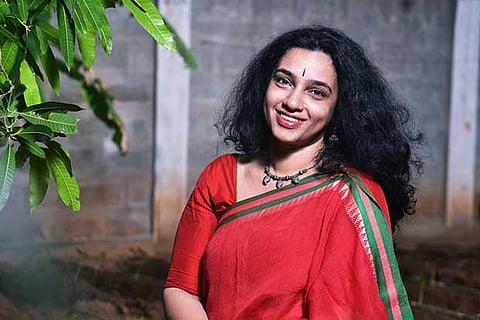

Chennai
Having recently authored an environmental treatise called The Climate Solution , the TVS scion delves deep into why ecologically sustainable projects are of paramount importance to both individuals and corporates. In an interview, she charts out the way forward:
Deconstruction mechanics
I majored in chemistry and microbiology with distinction from Cornell. My interest in genetics led me to do a bit of research. After I returned to India, I began working with Southern Roadways, a TVS Group company, where I was the only woman on the shop floor in Madurai. From taking apart a truck and reassembling it, to putting together a service manual for heavy duty commercial vehicles, I have always enjoyed a hands-on approach to things. Unless the one in charge is willing to get his or her hands dirty, you cannot expect anyone else to do it. That is a philosophy that I derive from the TVS culture. Dressed in khaki, I used to train the next-generation of mechanics at Southern Roadways. I later went back to the US to do my MBA from the Kellogg, which was followed by a job in consulting with McKinsey and Co. After my Silicon Valley stint as a biotech specialist, I returned to India, at the time of the dotcom bust.
Getting one’s hands dirty
When I came home to Madurai, my curiosity in waste management was piqued. The absence of shopping malls back then meant hiking and temples were my only outings. We also had an opportunity to work with the Meenakshi Amman temple on a waste management project. Here, we took close to 500 readings of dust bins and waste materials. Thereafter, a comprehensive waste mapping was done. The temple staff worked with our team for 2 months, overseeing the contents and the weightage of the waste, which helped us devise solutions to tackle the issues. We realised that the dynamics of small towns are different from those of a metro. We have completed data capture for 1,000 families, in the region and interpreted their attitude to waste and water management.
Cost vs price dilemma
The sad story is that we are willing to pay the price of badly-managed water and waste, but we are not willing to pay the cost – in the form of ailments like dengue. The threat of Day Zero, when water scarcity is the absolute norm, looms everywhere. It’s why a balance between sustainability and development is imperative. My role in Sundaram Textiles gave me exposure to Total Productivity Management (TPM) quality standards – we are a zero waste company and one of the few textile companies in the world to get the Japanese award.
Generation Y initiatives
As far as the next generation is concerned, environment has become their #1 priority. Right now, we have onboarded a group of young interns at our Climate Institute who are doing hands-on work with waste and water. We have invested in close to 15 companies (including carpooling and clean-tech firms). Simple things can help improve the green quotient of your business. For instance, basic tyre pressure checks can make up for 10 to 20 per cent saving in your average fuel cost. We did a head-to-head trial as there was a ban on 15-year-old-vehicles. A brand new ‘Tata’ Truck and a 15-year-old truck performed identically, which highlights the value of good maintenance.
Future focused academia
We are currently conducting trials at our institute involving the treatment of sewage water to irrigate coconut farms. We would like to replicate this model on a larger scale for efficient water usage in the company – for instance, in non-potable applications. Our focus is on school students between the ages of 9-13, for whom we are now developing a curriculum on waste management. It’s a hands-on programme, which we have piloted in two schools. The local authorities has shown interest in working with us to take the programme forward.
Visit news.dtnext.in to explore our interactive epaper!
Download the DT Next app for more exciting features!
Click here for iOS
Click here for Android